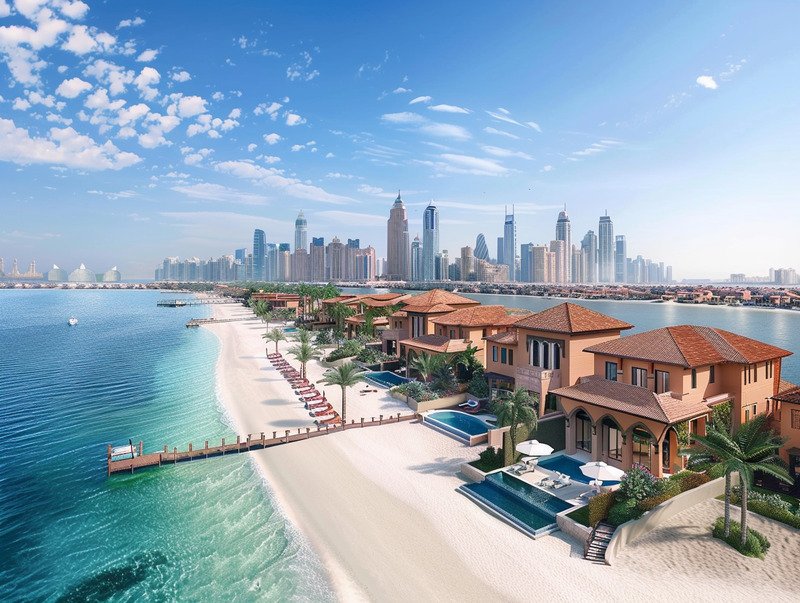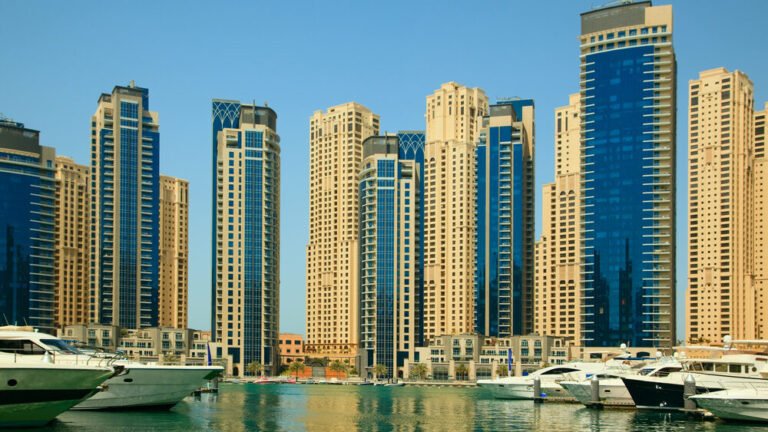Role of the Earnest Money Deposit in the Buying Process

In Dubai's dynamic real estate market, earnest money deposits are a crucial part of property transactions. This initial payment demonstrates a buyer's commitment and protects both parties involved. Understanding the role of earnest money is essential for a smooth purchasing process in Dubai's property landscape.
Typically, earnest money in Dubai ranges from 5% to 10% of the property's value. This amount is usually paid within 7 days of signing the Memorandum of Understanding (MOU) or sales agreement. The deposit is held in escrow by a trusted third party, often a real estate agency or law firm.
If the deal proceeds as planned, the earnest money is applied towards the purchase price. However, if the buyer backs out without a valid reason, they may forfeit the deposit. Conversely, if the seller cancels the deal, they may be required to return double the earnest money amount.
It's crucial to have a clear agreement outlining the conditions for refunding or forfeiting the earnest money. This protects both buyers and sellers from potential disputes and ensures a fair transaction process in Dubai's real estate market.
Let us help you find the perfect property. Contact us to get started.
Key Takeaways
In Dubai's vibrant real estate market, the earnest money deposit plays a crucial role in property transactions. Known locally as a "good faith deposit," it signifies a buyer's serious intent to purchase. This practice helps streamline the buying process in a competitive market where luxury properties and high-end developments are common. The deposit amount and terms can vary based on the property type, from apartments in the bustling Dubai Marina to villas in exclusive communities like Emirates Hills.
The earnest money deposit in Dubai typically ranges from 5-10% of the purchase price, higher than in many other markets. This substantial amount reflects the high-value nature of Dubai's real estate and serves to deter non-serious buyers.
Upon signing the Memorandum of Understanding (MOU), the buyer transfers the deposit to a secure escrow account. This ensures transparency and protection for both parties during the transaction process, aligning with Dubai's strict real estate regulations.
The deposit is usually non-refundable unless specific conditions are met. These may include failure to secure mortgage approval or discovery of major property defects during inspection. Such contingencies are carefully negotiated and documented in the MOU.
If the sale proceeds successfully, the earnest money is applied towards the final purchase price. In Dubai's fast-paced property market, this deposit often secures the property, preventing the seller from entertaining other offers during the transaction period.
What Is Earnest Money
In Dubai's real estate market, earnest money, also known as a good faith deposit, plays a crucial role in property transactions. This deposit, typically 10% of the purchase price, demonstrates a buyer's commitment to the deal. It's usually paid within a few days of offer acceptance and held in an escrow account by a third party, often a real estate agency or lawyer.
Earnest money serves two primary purposes in Dubai. Firstly, it shows the seller that the buyer is serious about the purchase, encouraging them to remove the property from the market. Secondly, it provides financial protection for the seller if the buyer backs out without a valid reason.
In Dubai, the earnest money is generally applied towards the purchase price if the sale proceeds as planned. However, if the buyer cancels the purchase for reasons not covered by contract contingencies, they may forfeit this deposit to the seller as compensation.
Dubai's real estate laws and regulations govern the handling of earnest money. It's essential for buyers to understand the terms and conditions related to this deposit, as outlined in the Memorandum of Understanding (MOU) or purchase agreement.
Typical Amount of Earnest Money
In Dubai's real estate market, earnest money typically amounts to around 10% of the property's purchase price. This deposit serves as a good faith gesture, demonstrating the buyer's serious intent to complete the transaction. The exact amount can vary based on factors such as property value, market conditions, and negotiations between buyer and seller.
The earnest money deposit is usually held in an escrow account until the sale's closing. This protects both parties and ensures funds are available when needed. In Dubai's competitive real estate market, a larger deposit may make your offer more attractive to sellers.
Local regulations and customs in Dubai may influence the earnest money requirements. It's crucial to work with a licensed real estate agent familiar with Dubai's property market to determine the appropriate deposit amount for your specific situation.
Always consult with a legal professional to understand the terms and conditions associated with the earnest money deposit in Dubai. This will help protect your interests throughout the property purchase process.
When to Pay Earnest Money
In Dubai's real estate market, earnest money is typically paid within 1-3 business days after the seller accepts your offer. This payment demonstrates your commitment to the purchase and is a crucial step in the property buying process.
The exact timing for earnest money payment is usually specified in the purchase agreement. It's essential to review this document carefully to ensure you meet the stipulated deadlines. Your real estate agent or lawyer will guide you through the process of submitting the earnest money.
In Dubai, earnest money is often transferred to an escrow account managed by a trusted third party, such as a real estate agency or a bank. This ensures the funds are securely held until the sale is completed.
Prompt payment of earnest money is vital in Dubai's competitive property market. Delays could potentially jeopardize your offer, as sellers may interpret it as a lack of seriousness. Be prepared to provide proof of payment, such as a wire transfer confirmation, to your agent or the seller's representative.
Protecting Your Earnest Money Deposit
Protecting your earnest money deposit is crucial when buying property in Dubai. To safeguard your investment, take specific precautions tailored to the local real estate market. Use reputable escrow services or licensed Dubai real estate agents to handle transactions, preventing fraud and ensuring secure fund holding.
Thoroughly review purchase agreements, paying attention to contingencies that allow deposit recovery if the deal falls through. Familiarize yourself with Dubai’s property laws and regulations to understand your rights and obligations as a buyer. It is also important to consult with a real estate lawyer or advisor during the initial consultation process to ensure that you have a full understanding of the legal implications of the purchase agreement. They can provide valuable insights and guidance to protect your interests and ensure a smooth transaction. Additionally, consider seeking out reputable real estate agents or brokers who have a good understanding of the local market and can provide trustworthy advice throughout the purchasing process.
Keep detailed records of all communications and transactions related to the purchase. This documentation can be invaluable if disputes arise in Dubai's real estate landscape.
Be aware of timelines specified in the contract and adhere to them strictly. Missing deadlines could put your earnest money at risk, especially given Dubai's fast-paced property market.
Consult with a Dubai-based real estate attorney for expert advice tailored to your specific situation. They can help navigate local laws and ensure your interests are protected throughout the buying process.
Consider working with a RERA-registered broker in Dubai. These professionals are well-versed in local regulations and can provide additional security for your earnest money deposit.
Earnest Money Vs. Down Payment
In Dubai's real estate market, understanding the difference between earnest money and down payment is crucial.
Earnest money, typically 5-10% of the property's value, is a good faith deposit paid when signing the sales agreement. It demonstrates serious intent to purchase.
The down payment, usually 20-25% of the property's value, is paid at the time of transfer. It's a larger sum and a significant financial commitment affecting mortgage terms and monthly payments.
Earnest money is often credited towards the down payment, reducing the amount needed later. However, it may be forfeited if you fail to secure financing or back out of the deal for reasons not covered in the contract.
The down payment is non-refundable and forms part of the purchase price. It's a critical step in acquiring property in Dubai.
Understanding these distinctions helps navigate Dubai's real estate transactions more effectively, ensuring preparedness for each stage of the buying process.
Refundable and Non-Refundable Scenarios
In Dubai's real estate market, earnest money deposits play a crucial role in property transactions. The refundability of these deposits depends on various scenarios outlined in the sale agreement. Understanding these conditions is essential for both buyers and sellers to protect their interests and navigate the process smoothly. Dubai's real estate laws and practices govern these scenarios, which can differ from other global markets.
Refundable scenarios in Dubai typically include situations where the sale falls through due to circumstances beyond the buyer's control. For example, if the property fails to pass inspection or the buyer is unable to secure financing despite good faith efforts, the deposit is usually returned.
Non-refundable scenarios often occur when the buyer breaches the contract terms. This can include missing crucial deadlines, such as failing to complete the purchase within the agreed timeframe. In Dubai, changing one's mind about the purchase without valid reasons can also result in forfeiture of the deposit.
Dubai's real estate contracts may include specific contingencies that protect the buyer's deposit. However, waiving these contingencies to make an offer more attractive can increase the risk of losing the earnest money if the buyer later backs out.
It's crucial for buyers in Dubai to thoroughly review their contracts and seek advice from local real estate professionals. This ensures a clear understanding of the terms and conditions surrounding the earnest money deposit in the context of Dubai's unique property market.
Negotiating With Earnest Money
Earnest money plays a crucial role in Dubai's real estate negotiations. When making an offer on a property, a substantial deposit demonstrates your commitment and can give you an edge over other buyers. In Dubai's competitive market, earnest money can be leveraged to negotiate better terms, such as a lower purchase price or more favorable contingencies. However, it's essential to strike a balance between showing commitment and risking more than you're comfortable losing if the deal falls through.
In Dubai's real estate market, offering a larger earnest money deposit can strengthen your position. This strategy is particularly effective in high-demand areas or for luxury properties.
Consider making your earnest money non-refundable after a specific period to show extreme commitment. However, this is a risky move that requires careful consideration and consultation with a local real estate expert.
Always work with a reputable Dubai-based real estate agent who understands the local market dynamics. They can guide you on the appropriate amount of earnest money to offer and how to use it effectively in negotiations.
Remember that Dubai's real estate laws and practices may differ from other markets. Familiarize yourself with local regulations regarding earnest money deposits and refund conditions before making any commitments.
Conclusion
Earnest money plays a crucial role in Dubai's real estate transactions. As a property buyer, it's essential to grasp the intricacies of this deposit. Understanding the typical amount, payment timing, and protection methods is key to a smooth purchase process. Distinguishing between earnest money and down payments is vital, as is knowing when deposits are refundable or non-refundable. Mastering these aspects and learning to negotiate effectively with earnest money will empower you to navigate Dubai's property market with confidence and security.
In Dubai, earnest money typically ranges from 5% to 10% of the property's value. This deposit is usually paid when signing the Memorandum of Understanding (MOU) or the initial sale agreement. It demonstrates the buyer's commitment and good faith to proceed with the transaction.
The earnest money is held in escrow by a third party, often a real estate agency or law firm. This practice safeguards both the buyer's and seller's interests during the transaction process. It's crucial to ensure that the escrow terms are clearly defined in the purchase agreement.
Earnest money becomes non-refundable if the buyer backs out of the deal without valid reasons. However, it's refundable if the seller fails to meet contractual obligations or if the property fails to pass inspection. Understanding these scenarios is essential for protecting your interests.
Let us help you find the perfect property. Contact us to get started.






